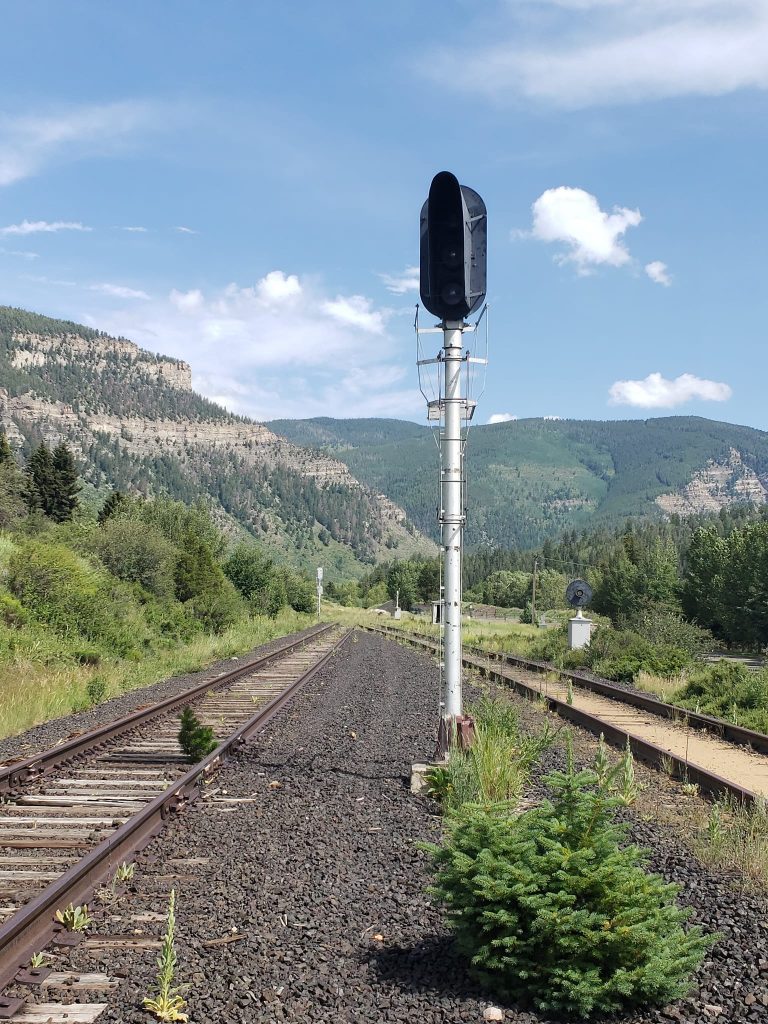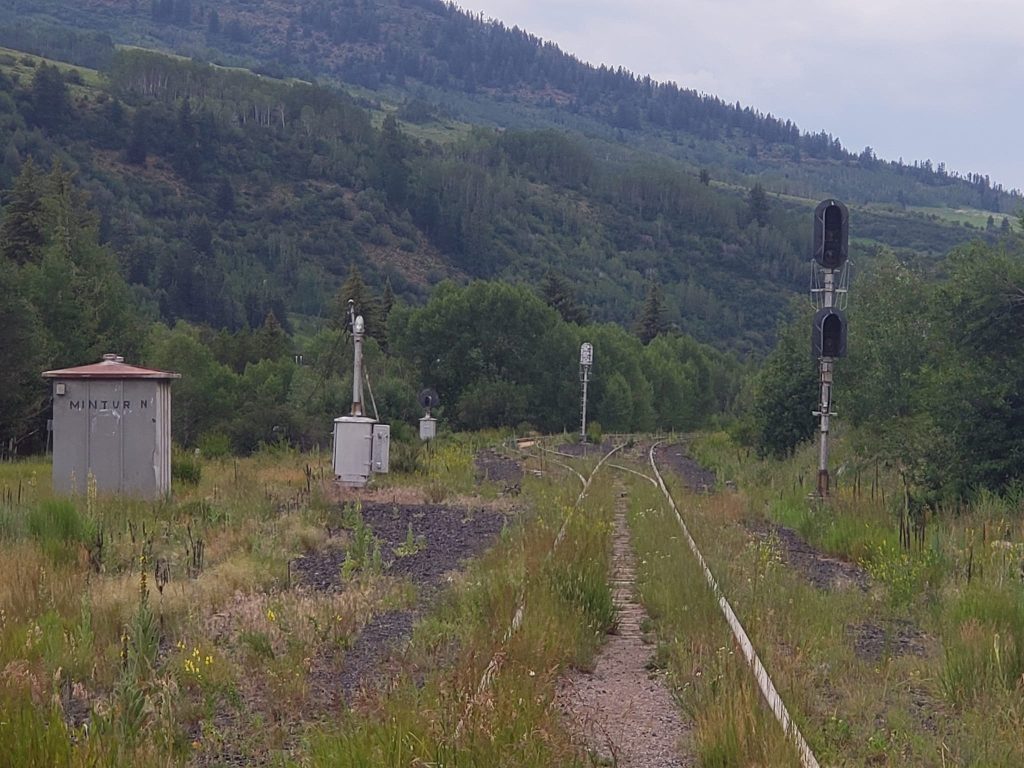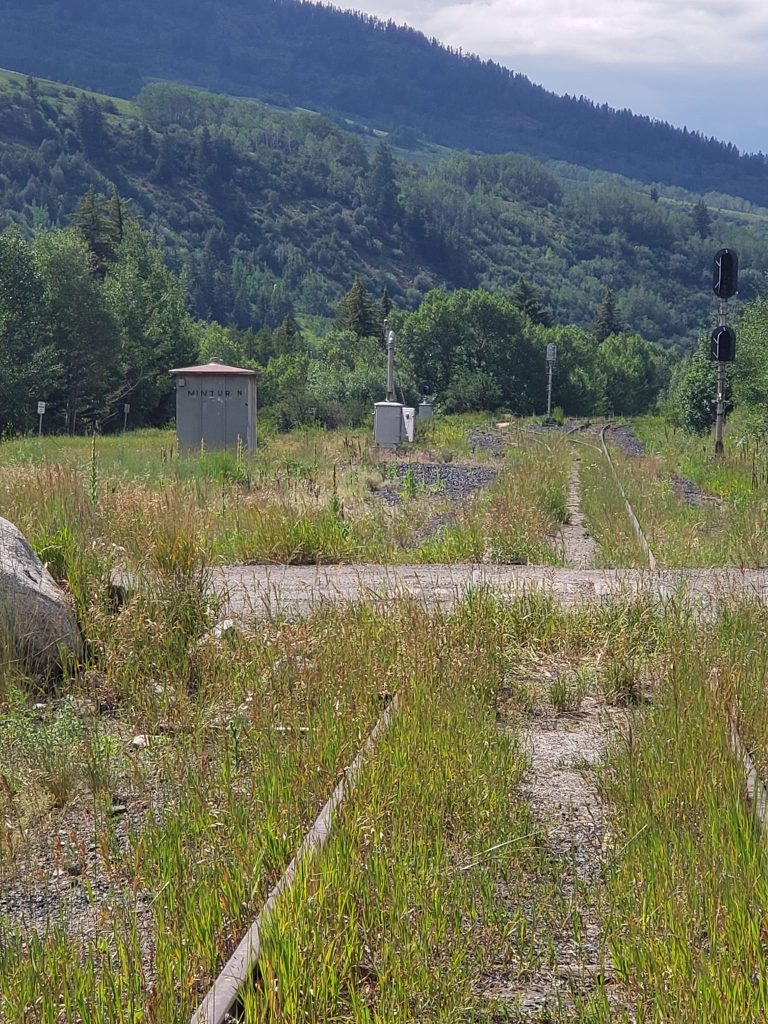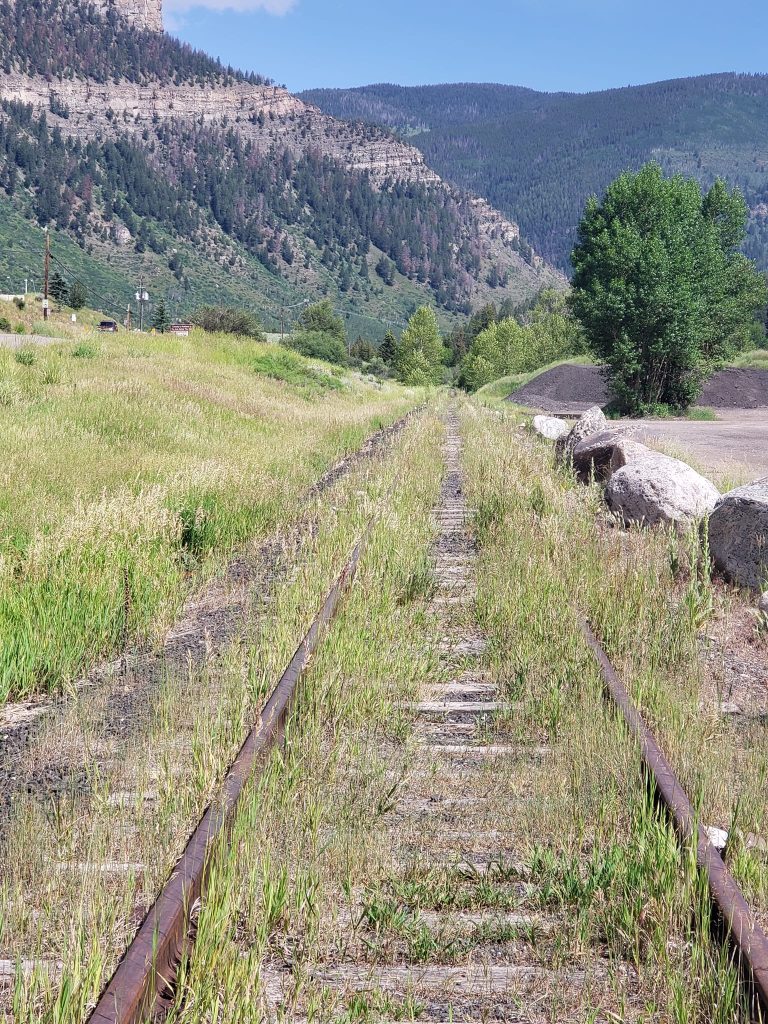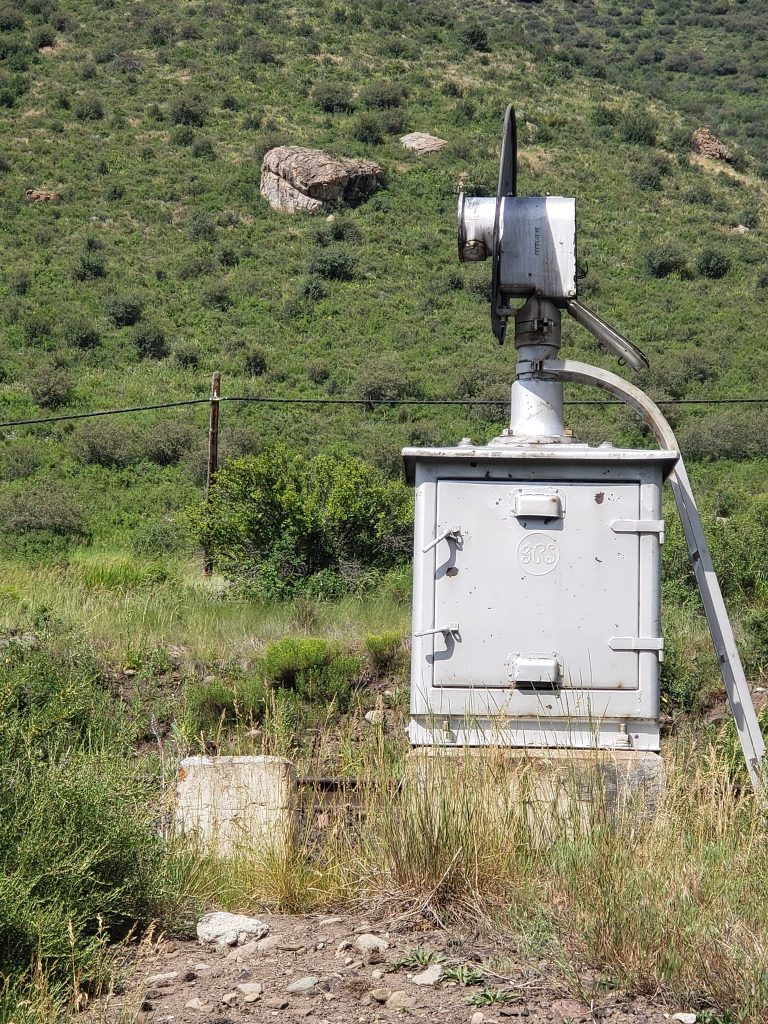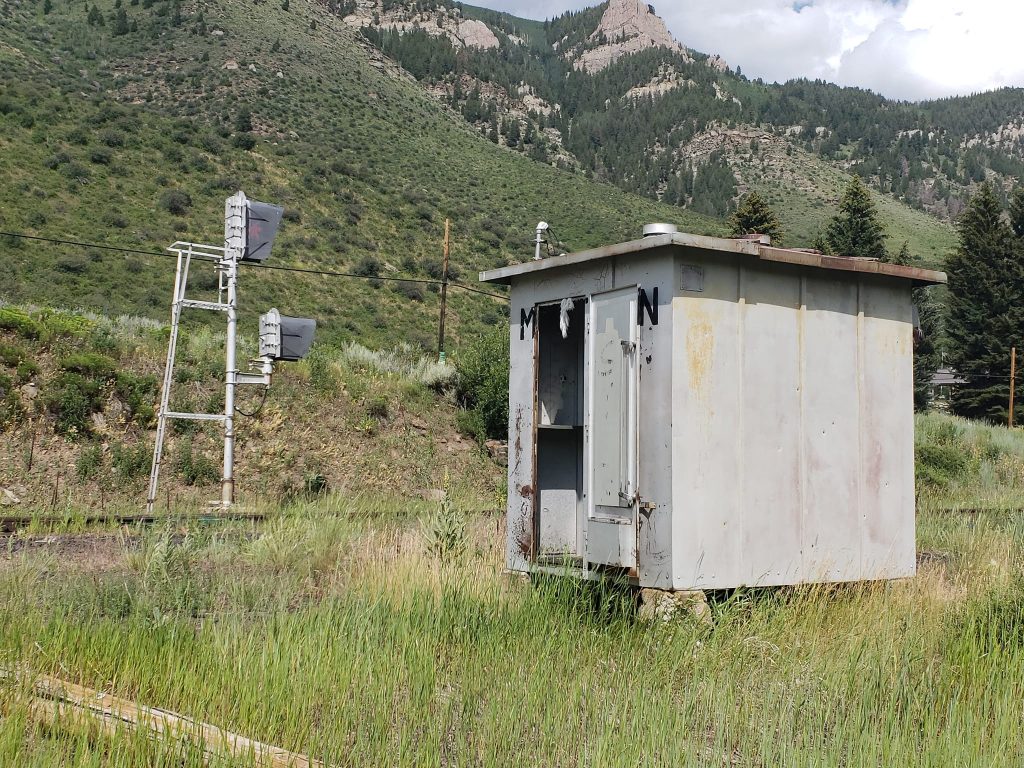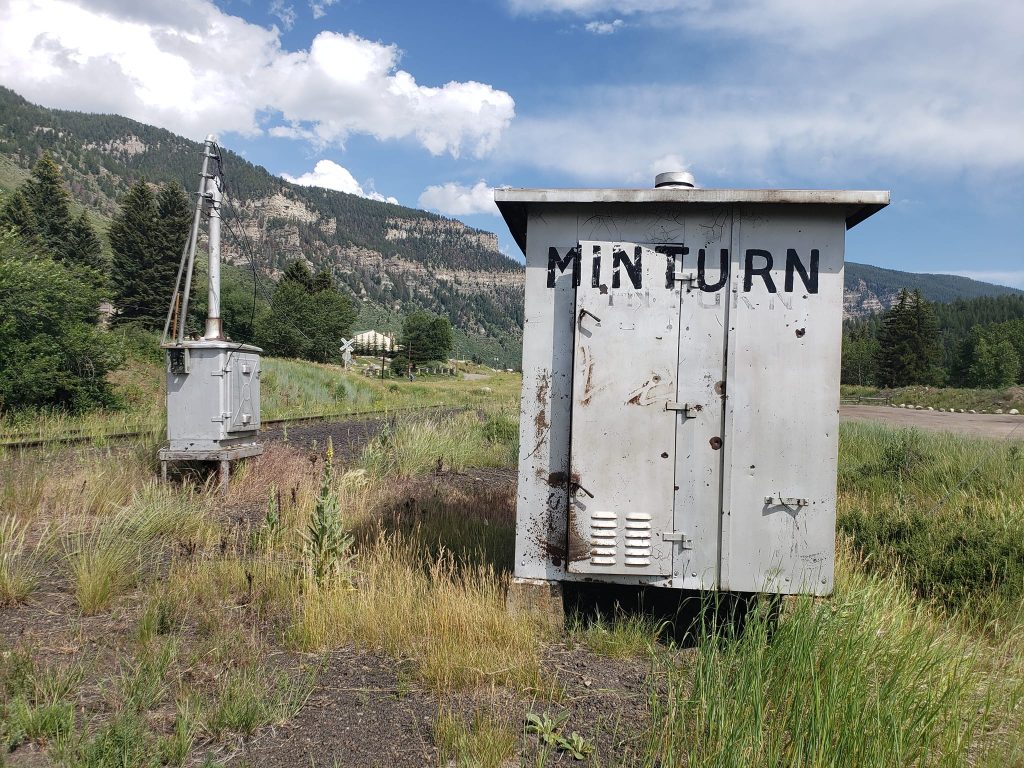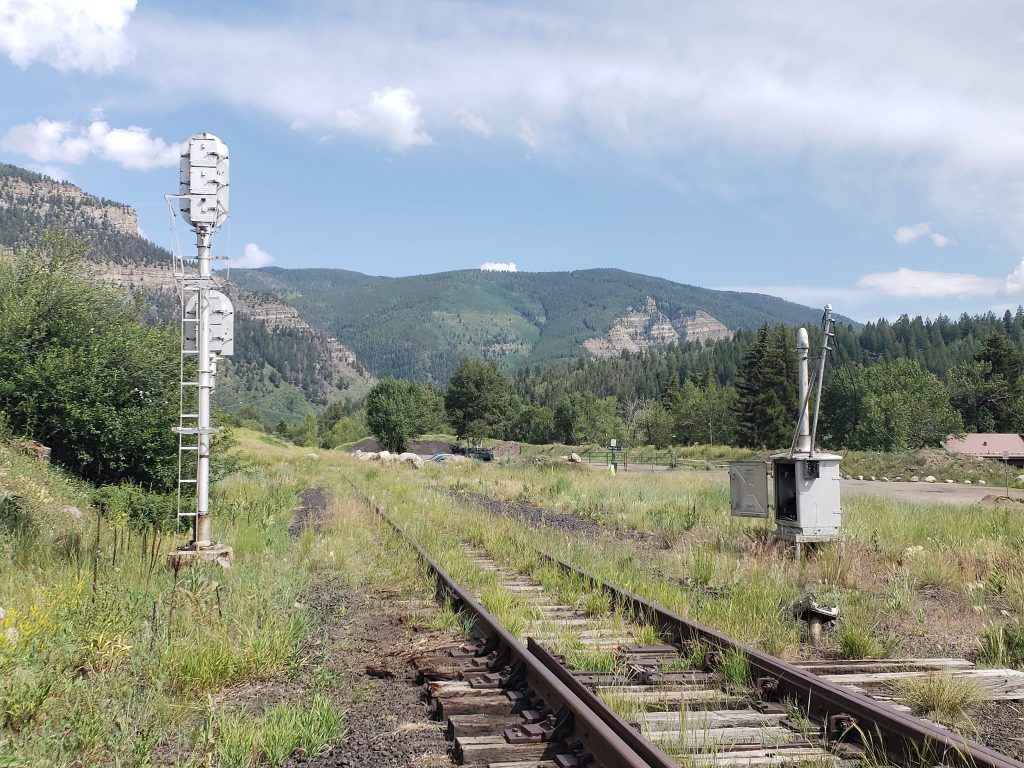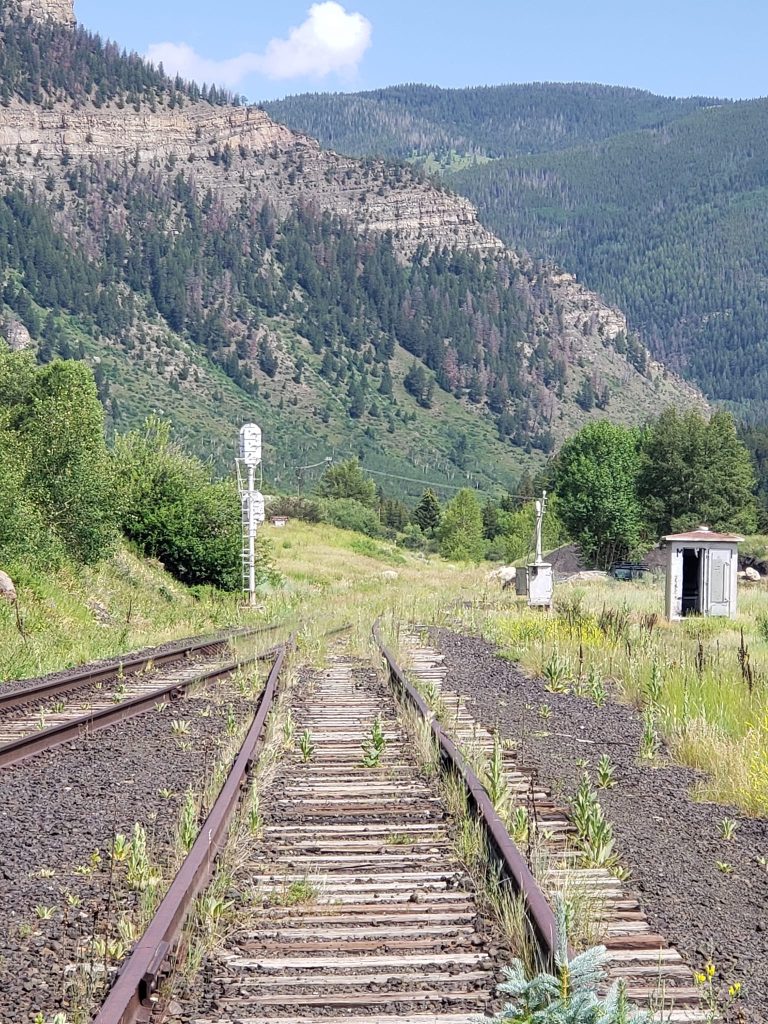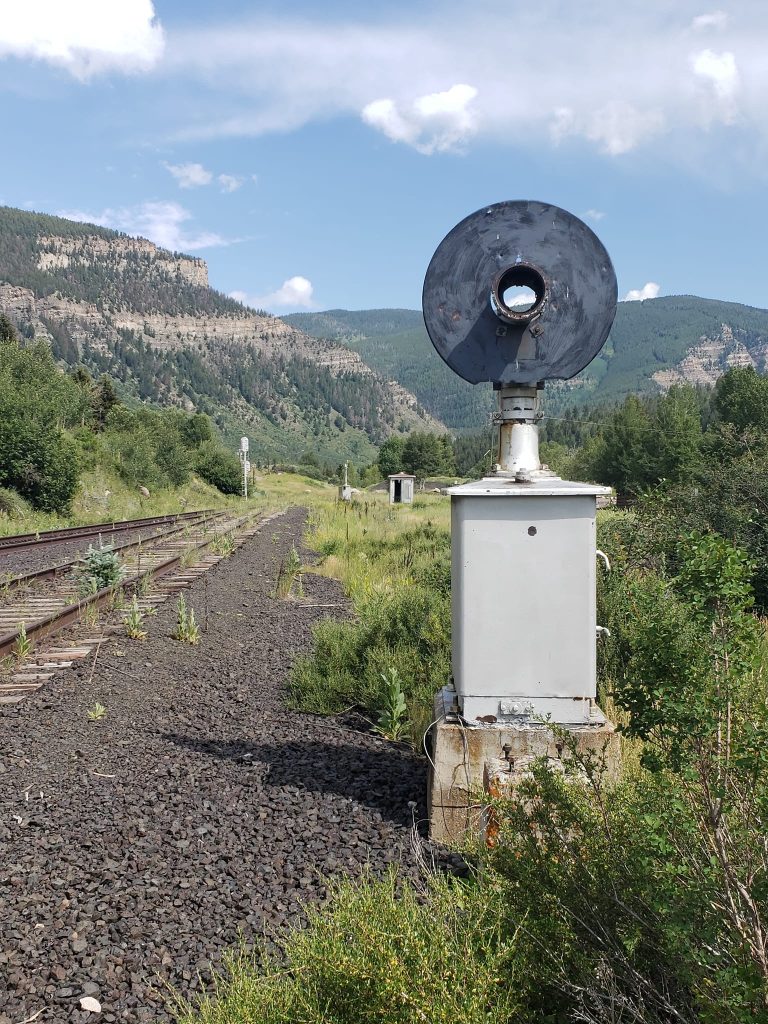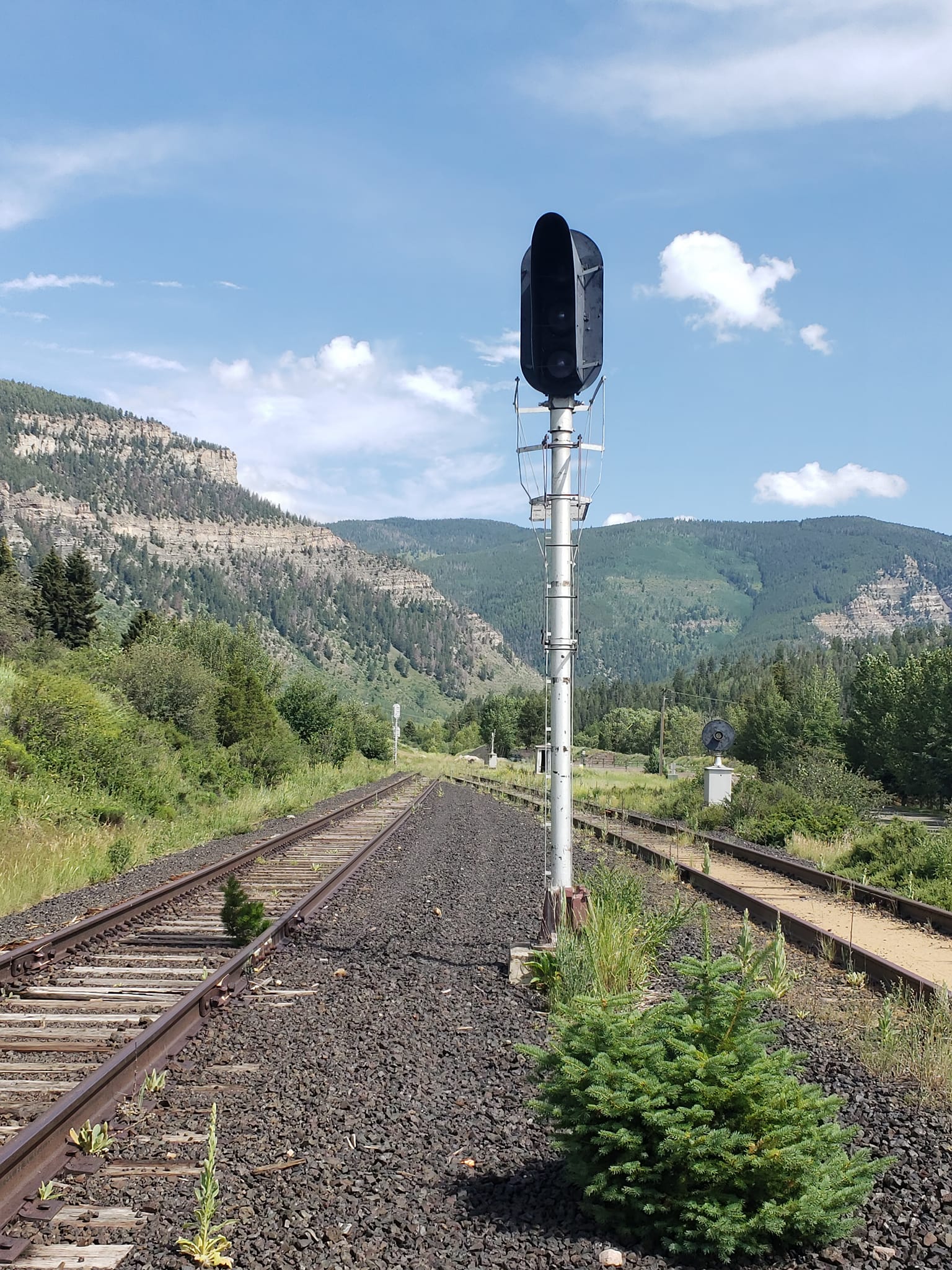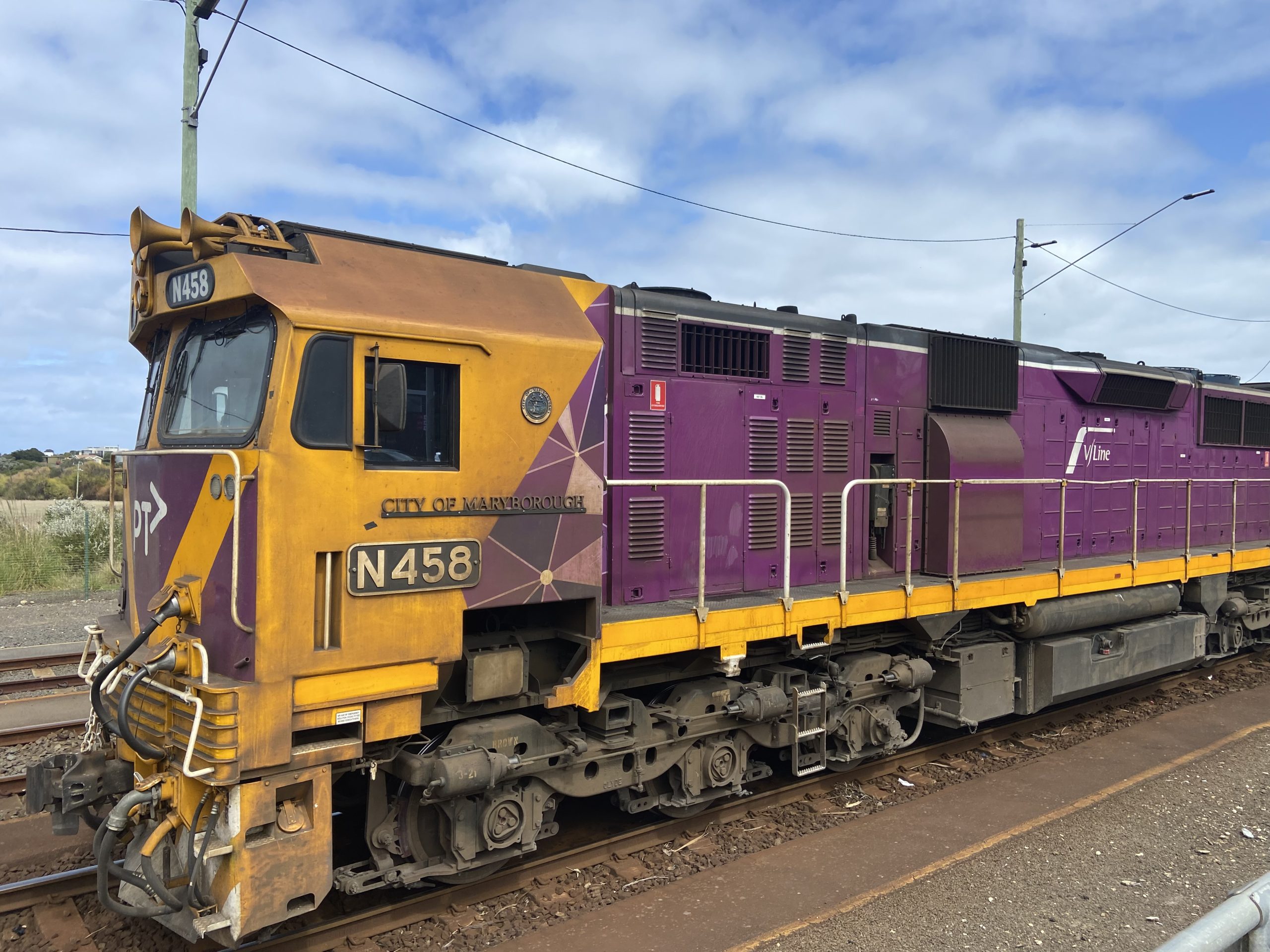Tennessee Pass is located at the eastern portal of the Tennessee Pass tunnel, and is the summit of the Tennessee Pass Route at approximately 10,075 ft.
Construction
The original narrow gauge line was laid over the pass in 1881. On the east side of the summit, this original grade became US Highway 24 today. On the west side, the line went far to the west, making a sweeping curve and crossing the modern alignment (and highway) north of Mitchell. The line then went east down and around Camp Hale?, rejoining the modern alignment north of Pando?.
The First Tunnel – 1889-1945
In 1889-1890, a tunnel was bored 200ft. beneath the summit in preparation for standard gauging the line, at a cost of $1M. In addition, the modern alignment down through Mitchell?, Deen Tunnel?, and Pando? was constructed
D&RG eastbound passenger train #6 rear-ended a freight inside the tunnel on 16 Oct 1909. There were no fatalities, but the caboose and refrigerator car at the end of the freight were destroyed. The freight was supposed to take the siding at Mitchell? but proceeded instead.1
1909 Collapse
On 17 May 1909, a track walker discovered a 500 foot long cave-in about 1000 feet inside the west portal.23 The cave-in was a result of snowmelt carrying rocks and debris down one of three ventilating shafts from the surface. Despite initial concerns, the tunnel was empty at the time and no one was injured as a result of the collapse.4
Initial estimates were that the line would be cleared in four days, but later estimates put repairs at nearly a month. Detour traffic was sent over the Colorado Midland between Leadville? and Glenwood Springs? via the Busk-Ivanhoe Tunnel. Local traffic between Glenwood Springs? and Red Cliff? was handled by a stub train leaving Glenwood at 1400h and returning that same evening.5
On 20 May 1909, D&RG eastbound passenger train #6 hit a broken rail while doing 30mph on the CM near Wheeler, CO?, derailing the diner, smoker, two coaches (a “tourist car” and a “day coach”), and two baggage cars. The tourist car was apparently wood and smashed to bits, whereas the baggage cars just experienced “serious damage”. There were no serious injuries.6
The tunnel was initially reopened on 31 May 1909.7 As late as 10 Jun 1909, surveyors were reportedly still looking at a temporary alignment over the top to allow teams to complete the concrete tunnel liner sooner.8
The Second Tunnel – 1945-Present
The original tunnel was replaced by a newer, larger one in 1945, located about 50 feet west of the original.
Facilities
The Tennessee Pass depot was retired in 1958, as a result of CTC being extended from Minturn? all the way to Malta. Prior to this, the Tennessee Pass depot controlled the CTC island between Pando? and the summit tunnel.
Maps and Photos
A look at the line in Minturn, Colorado.
